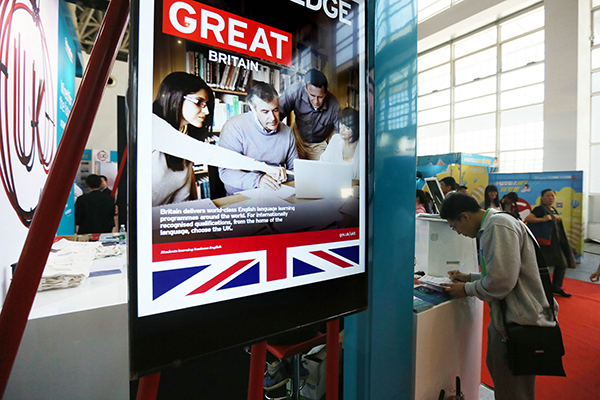Brexit brings pains and gains for different groups
(China Daily) Updated: 2016-06-27 08:15
 |
|
A booth of studying in UK at an expo in Beijing, May 7, 2016. [Photo/VCG] |
University applicants:
China contributed the largest pool of overseas students to the UK in 2015, accounting for 15 percent. Brexit could lead to tighter student visa and immigration policies in the UK. Worse, some multinational companies may move their European headquarters away from Britain. This could hurt job prospects of career-minded Chinese students who usually hope to gain some post-study work experience in the UK.
British universities used to receive nearly 15 percent of their total annual funding from the EU, towards scholarships, research and innovation. That will stop after Brexit. Part of its impact may be offset by higher budgetary allocations from the UK, which no longer has to contribute funds to the EU. Yet, tuition fees of British universities are expected to rise.
That may increase the financial burden on Chinese students. How far a weaker pound offsets this remains to be seen. A standalone Britain outside of the EU may lose some of its pull. It is conceivable that some Chinese students will pursue higher education in France or Germany, or go farther to the United States.
- Brexit brings pains and gains for different groups
- Tesla charging posts to become ubiquitous and enable long drives in future
- Exploiting Summer Davos to promote Tianjin among investors
- China-Europe railway line offers more than economic benefits
- Road to 'green' cars bumpy, but innovation is key
- Nike, Adidas thrive as luxury goods feel pinch of austerity
- US fund with 25% exposure to China generates good return
- What next after the UK vote?


















